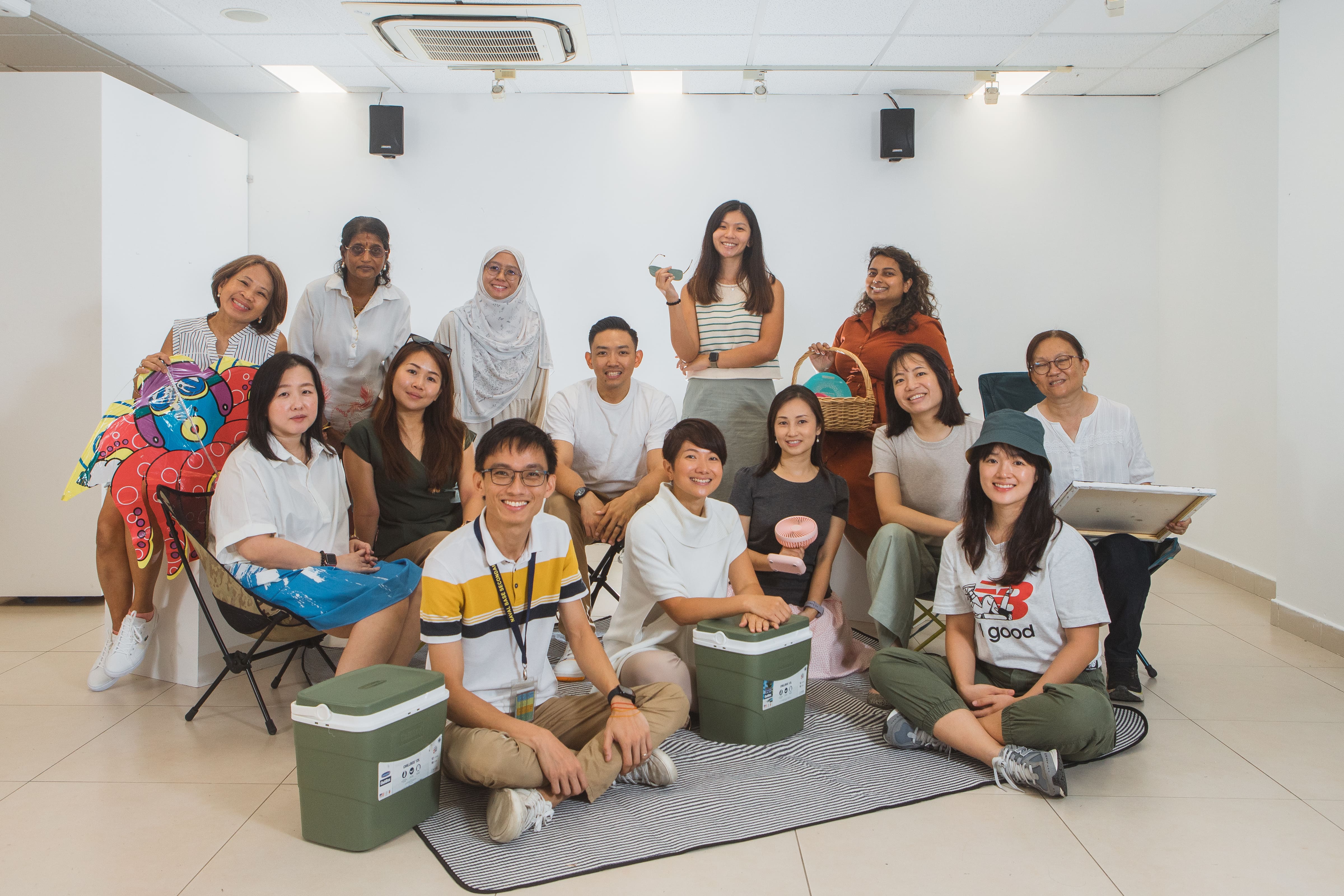Science

Department Vision
Guided by the principle that every child can learn
and excel, and its vision - Inquiring Mind and Innovative Spirit - the
Science Department is dedicated to shaping every child into an adaptive,
collaborative, and excellence-driven learner.
We recognize that each student is unique, with different strengths, challenges, and learning styles, and we aim to cultivate adaptability by encouraging students to approach problems with flexibility and resilience.
Through collaborative learning opportunities, we foster teamwork, communication, and shared problem-solving, helping students learn from one another and build essential skills for working in diverse environments.
At the same time, we instill a drive for excellence by setting high standards, challenging students to push beyond their limits, and inspiring them to pursue mastery in both scientific knowledge and personal growth.
By nurturing these qualities, we empower students to become future-ready learners who excel in all aspects of their academic and personal lives.
Curriculum, Pedagogy and Assessment
Our Science curriculum is grounded in the Ministry of Education's Policy Framework, fostering inquiry and curiosity. Aligned with our department’s vision, we design lessons and enrichment programs that provide authentic learning experiences and cultivate the joy of learning, while developing adaptive, collaborative, and excellence-driven learners.
Teachers create student-centered lessons based on core concepts and essential questions, employing strategies like feedback pedagogy, e-pedagogy, differentiated instruction, questioning techniques, thinking routines, and collaborative learning. These approaches cater to diverse learning profiles, promoting adaptability, teamwork, and critical thinking.
To support our excellence-driven focus, we use a range of assessments—projects, practical tasks, and written exams—to provide a holistic view of student progress. These assessments are designed to challenge students, encourage self-reflection, and measure mastery of scientific concepts and skills. Through ongoing feedback, we aim to empower students to track their growth and continue to develop the skills needed to excel.

STEM EXCEL Programme
“And beyond that – we want our people to have a sense of curiosity to explore and experiment, to create and innovate, and to have an open mind to new ideas. This will be our competitive advantage going into the future; framing tomorrow's challenges, and finding tomorrow's solutions ahead of time using STEM.” - Education Minister Chan Chun Sing
As such we need to equip our students with the skills and mindsets, to empower them to thrive in an ever-evolving world.
Our STEM ExCEL Programme is designed to ignite students' passion for STEM and enhance their skills in Science, Technology, Engineering and Mathematics. Through this programme, we aim to cultivate curiosity about the world, foster creative and critical problem-solving abilities, and nurture socially responsible citizens who strive to make a meaningful impact on others' lives.
|
Be Curious |
Curiosity encourages exploration. This nurtures adaptive learners who are open to learning and evolving with new information. Curiosity also fosters a culture of continuous improvement, supporting students in their drive for excellence. |
|
Be Creative |
Creativity fosters innovative thinking, helping students grow as adaptive and collaborative learners who co-create effective solutions. |
|
Be the Change |
Developing a changemaker mindset is associated with excellence-driven individuals who aim to make meaningful contributions and improve the community. |
The STEM EXCEL Programme is designed to progressively develop students’ STEM capabilities from Secondary 1 to Secondary 4/5. The focus for each level is as follows:
-
Sec 1 - STEM Exploration
-
Sec 2 - STEM Connection
-
Sec 3 - STEM Empowerment
-
Sec 4 - STEM for Life

We adopt a tiered approach to the programme for each level in order to meet the diverse needs of our students.
|
|
Sec 1 STEM Exploration |
Sec 2 STEM Connection |
Sec 3 and Sec 4 STEM Empowerment & for Life |
|
Excel |
Singapore Science Buskers |
|
|
|
Enrich |
Show & Tell/ Discovery in Action
|
|
|
|
Embrace |
STEM Learning Journeys to Science Centre
|
|
|
Sec 1 STEM Exploration
In their first year, students explore various STEM fields through activities
that showcase the applications of science and enhance awareness of STEM
careers

Sec 2 STEM Connection
In their second year, students build on their foundation by connecting
STEM to science, technology, society, and the environment. They apply scientific
concepts and design thinking to tackle more complex tasks, deepening their
skills and knowledge.

Sec 3 STEM Empowerment & Sec 4/5 STEM for Life
In their 3rd year, students will advance further through their participation
in advanced STEM workshops, learning journeys and higher level competitions.
These experiences hone advanced science skills, foster STEM discussions,
and empower students to solve complex challenges independently.
In their graduating year, students will have the opportunities to higher
level institutions and attend workshops to delve deeper into the world
of STEM. Students will be guided to consolidate their STEM learning experiences,
helping them prepare for applications to further studies and related career
paths.

Notable Accomplishments
NUS Crystal Growing Challenge 2024 - Merit Award
Awardees: Loke Yu Ru Bernice and Lorraine Tan Yishi
25th International Elementz Fair (2024) - Silver Award
Awardees: Oo LaDawn, Tan Yujun and Samantha Bella Vu Jing Wen
Tan Kah Kee Young Inventors’ Award 2024 - Encouragement Award
Awardees: Oo LaDawn, Tan Yujun and Samantha Bella Vu Jing Wen
IgnITE Skills Challenge 2024 - Gold Award
Awardees: Marsha Adhwaa Aliani Binte Abdullah, Gan Ting Eng and Goh Kor
Qi
Illustratum 2023 - Merit Award
Awardees: Chloe Lim Rui Jia, Ning Jing Qi, Chen Jing Yang, Liu Jia Wen,
Tisha Gupta and Carie Oh Jing Xuan

